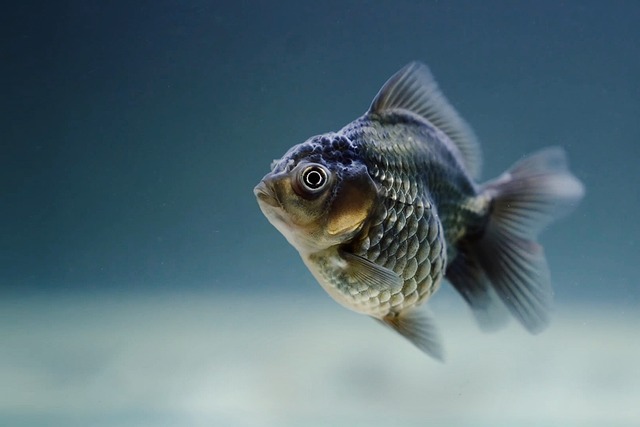
Do Fish Pee? Exploring the Aquatic World’s Little-Known Secret
Ever wondered what happens to all the water fish swim in? Here’s a surprising fact: fish do pee! While it might not be something you think about often, the process of fish urination plays a crucial role in their biology and the health of aquatic ecosystems. In this blog, we’ll explore how and why fish pee, its importance in their biology, and its effects on the marine environment.
Understanding Fish Physiology
- Overview of Fish Excretory System
Fish, like all animals, need to get rid of waste products to stay healthy. The primary organ responsible for this in fish is the kidney. Fish kidneys are specially adapted to filter out waste products from the blood and excrete them in the form of urine. This process is vital for maintaining their internal balance.
- The Process of Osmoregulation
One of the fascinating aspects of fish physiology is osmoregulation, the process by which they maintain the balance of salts and water in their bodies. Freshwater and saltwater fish face different challenges in this regard. Freshwater fish constantly take in water through their skin and gills because their body fluids are saltier than the surrounding water. They produce large amounts of dilute urine to expel the excess water. In contrast, saltwater fish lose water to the salty environment and must drink seawater and excrete concentrated urine to avoid dehydration.
Differences Between Freshwater and Saltwater Fish
The excretory processes differ significantly between freshwater and saltwater fish due to their environments. Freshwater fish have to deal with an overabundance of water and expel it efficiently, while saltwater fish manage their salt intake and minimize water loss. Despite these differences, both types of fish use their kidneys and urinary systems to maintain homeostasis.
Why Do Fish Pee?
- Removal of Waste Products
One of the primary reasons fish pee is to remove waste products from their bodies. Ammonia, a byproduct of protein metabolism, is toxic and needs to be excreted. Fish release ammonia directly into the water through their gills and produce urine to expel other waste products and excess salts.
- Regulation of Body Fluids
Peeing also helps fish regulate their internal fluid balance. By adjusting the concentration and volume of their urine, fish can maintain the right balance of salts and water in their bodies, which is crucial for their overall health.
You May Love To Read:
Why Fish Don’t Exist? Controversial Concept in Modern Biology
Importance of Urination in Fish Health
Fish urination is not just a quirky fact; it’s a critical aspect of their health and overall well-being. The process of excreting urine plays several vital roles in maintaining the physiological balance and preventing diseases in fish.
- Removal of Metabolic Waste
Fish metabolize food to obtain energy, and this process generates waste products, primarily ammonia. Ammonia is highly toxic to fish if it accumulates in their bodies. Through the process of urination, fish can efficiently remove ammonia and other nitrogenous wastes from their bloodstream. This detoxification process is crucial because even small amounts of accumulated waste can disrupt cellular functions and lead to severe health problems, including gill damage and compromised immune systems.
- Regulation of Electrolytes
Fish live in environments where the concentration of salts can vary significantly, especially between freshwater and saltwater habitats. To maintain their internal homeostasis, fish must carefully regulate the levels of various electrolytes, such as sodium, potassium, and chloride. Urination helps fish manage these electrolyte levels by excreting excess ions and retaining the necessary ones. This balance is essential for nerve function, muscle activity, and overall cellular operations.
- Osmoregulation and Fluid Balance
Osmoregulation is the process by which fish control the balance of water and salts in their bodies. Freshwater fish constantly absorb water through their skin and gills because their body fluids are more concentrated than the surrounding water. They produce large amounts of dilute urine to expel the excess water and avoid cellular swelling. In contrast, saltwater fish face the opposite challenge; they lose water to their hypertonic environment and must drink seawater and excrete concentrated urine to conserve water. Proper urination is crucial in both cases to maintain the correct internal environment, ensuring that cells function optimally and that the fish remain hydrated and healthy.
- Maintaining pH Balance
The kidneys and urinary system also help regulate the pH levels in a fish’s body. By selectively excreting acidic or basic substances, fish can maintain a stable internal pH, which is vital for enzyme function and metabolic processes. A stable pH is necessary to prevent conditions like acidosis or alkalosis, which can impair organ function and lead to illness.
- Disease Prevention
Healthy urination practices are linked to disease prevention in fish. The excretion of waste products and toxins reduces the risk of infections and diseases caused by pathogens that thrive in polluted or unbalanced internal environments. Additionally, a well-functioning urinary system supports a robust immune system, enabling fish to resist infections more effectively.
- Supporting Reproductive Health
For many fish species, maintaining proper fluid and electrolyte balance is essential for reproductive health. Urination helps ensure that the internal conditions are optimal for egg production and sperm viability. In some species, urine may also play a role in reproductive behaviors, such as territory marking or signaling readiness to mate.
- Enhancing Overall Vitality and Lifespan
Ultimately, the ability to effectively excrete urine contributes to the overall vitality and lifespan of fish. By maintaining a clean internal environment, regulating fluid and electrolyte balance, and supporting immune function, fish can thrive in their habitats, grow to their full potential, and reproduce successfully.
Impact of Fish Pee on the Aquatic Environment
- Nutrient Cycling
Fish urine plays a significant role in nutrient cycling within aquatic ecosystems. The nutrients excreted by fish, including nitrogen and phosphorus, are essential for the growth of marine plants and algae. These nutrients enter the food web and support a variety of aquatic organisms.
- Role in Algal Growth
The nutrients in fish urine can promote algal growth. While this can be beneficial in maintaining a balanced ecosystem, excessive nutrients can lead to algal blooms, which can harm water quality and aquatic life. This delicate balance highlights the importance of fish urine in maintaining ecological harmony.
- Ecological Balance
Fish pee contributes to the broader ecological balance in aquatic environments. It affects the availability of nutrients, the health of marine plants, and the overall water quality. This, in turn, influences the entire food web, from tiny plankton to larger predators.
Conclusion
Fish do pee, and this seemingly simple process has profound implications for their health and the health of aquatic ecosystems. From removing waste products and regulating body fluids to contributing to nutrient cycling and ecological balance, fish urine plays a vital role in the underwater world.
Next time you see a fish, remember that even in their serene, underwater world, they have their way of keeping things balanced – yes, even by peeing! So, take a moment to appreciate the complex interactions in aquatic environments, perhaps by visiting an aquarium or diving deeper into the fascinating world of marine biology.




